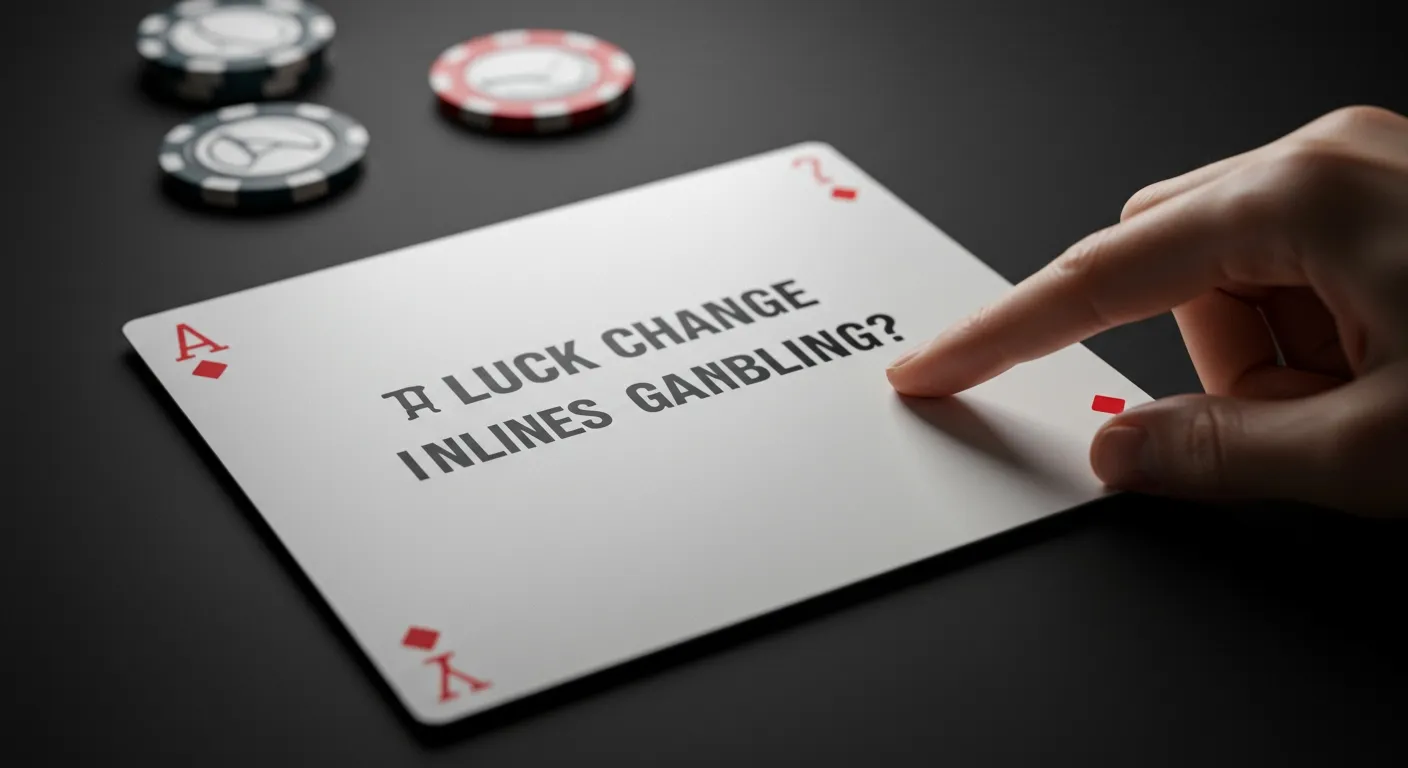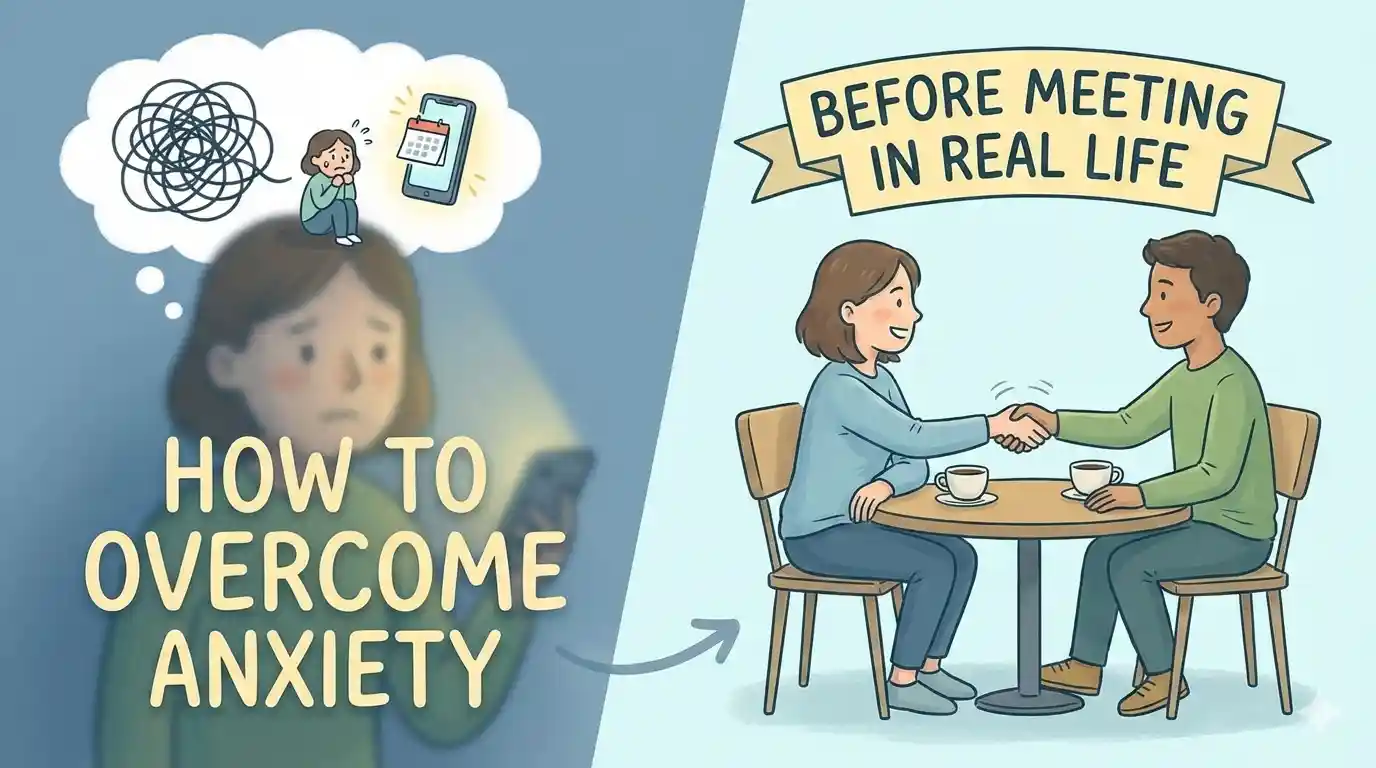Every gambler, from beginners to seasoned players, has wondered at some point: can luck really change in online gambling? You start a session strong, hitting multiple wins in a row, then suddenly nothing works — or the opposite happens, and you bounce back from a losing streak with unbelievable luck. The uncertainty and excitement of these swings are part of what makes online gambling so fascinating, but understanding whether “luck” can truly shift — or if it’s just perception — is key to playing smarter and staying in control.
The Psychology of Luck in Gambling
Luck feels almost magical when it’s on your side. You hit a jackpot, win a bonus round, or land a perfect hand at just the right time. But when luck seems to vanish, many players start chasing losses, believing their luck will “come back.” This is a powerful psychological trap known as the gambler’s fallacy — the mistaken belief that past results influence future outcomes in purely random games.
In reality, every spin, card deal, or dice roll in a legitimate online casino is independent. That means what happened before has no effect on what happens next. However, our brains are wired to look for patterns, especially when money and emotion are involved. This is why streaks — both good and bad — feel so real and personal, even when they’re just part of the mathematical variance built into the game.
Experienced players learn to separate emotion from logic. They understand that luck doesn’t change in the short term — what changes is how we perceive it. When you’re confident, focused, and managing your bankroll well, you tend to make better decisions, which can lead to better results. When frustration or greed take over, the opposite happens.
Understanding Variance and Randomness
Online casinos use Random Number Generators (RNGs) to ensure every outcome is unpredictable. These algorithms produce billions of number sequences per second, making it impossible to predict or influence a result. Whether you’re playing roulette, blackjack, or slots, the outcome you get is statistically random. This is what gives every player an equal chance — and it’s also what defines “luck.”
Over a long enough timeline, every game has what’s known as a Return to Player (RTP) percentage — the theoretical amount paid back to players over time. For example, a slot with 96% RTP means that, on average, it returns £96 for every £100 wagered across many sessions. But the key word is “average.” In the short term, anything can happen — that’s where luck feels like it’s changing.
Some players report having incredible hot streaks after switching games or playing at different times of day. These stories make sense emotionally, but they don’t have statistical proof. The only consistent truth in gambling is variance: the natural ups and downs that come with chance-based play.
The Influence of Mindset and Strategy
If luck is random, does mindset matter? Surprisingly, yes — not in changing odds, but in how you respond to them. Gambling with a clear, disciplined mindset often leads to better outcomes because it minimizes emotional mistakes. Losing players often double down impulsively, while confident players set limits and stop when ahead.
I’ve spent years testing various platforms, and I’ve found that your “luck” often seems to improve when you manage risk properly. For example, switching to lower-volatility games during a losing streak can stabilize your session and help rebuild confidence. On the flip side, chasing big wins in high-volatility slots after a loss usually leads to deeper losses.
The environment you play in also affects your results indirectly. Choosing reputable, fair casinos is essential. Many professionals recommend comparing operators before signing up, and exploring trusted sources like best uk gambling sites can help ensure you’re playing on legitimate platforms that use certified RNGs and transparent payout systems. A fair and secure casino doesn’t change your luck — but it guarantees that your results aren’t manipulated.
Skill vs. Luck: Where the Line Blurs
Not all online gambling depends purely on luck. Games like poker, blackjack, or sports betting introduce an element of skill that can influence outcomes over time. While chance determines short-term results, strategy and experience play a huge role in the long run. Skilled players can minimize losses during bad streaks and capitalize on favorable situations when the odds tilt in their favor.
For example, in poker, even if you’re dealt weak hands, smart decision-making — folding at the right time, reading opponents, and controlling emotions — can reduce your losses. In blackjack, applying basic strategy can cut the house edge to under 1%. In contrast, slot machines are entirely luck-based, and no strategy can alter their outcomes.
Understanding which category your favorite game falls into is crucial. If your goal is entertainment, luck-based games are perfect. If you want to exercise strategy and skill, focus on games where knowledge makes a difference. But always remember: even the best player can’t escape the role of chance entirely.
Can You Influence Luck?
There’s no way to manipulate or increase luck in online gambling, but you can create favorable conditions that make good outcomes more likely. This doesn’t involve charms or rituals — it’s about control and timing. For instance, many players notice they win more often when they’re relaxed, sober, and patient. That’s not supernatural luck; it’s improved focus and judgment.
Another subtle factor is game selection. Choosing titles with higher RTPs, verified fairness certificates, or lower volatility can tilt the experience slightly in your favor over time. It won’t change the randomness, but it optimizes the math behind your play. It’s like picking a race where you know the track — you can’t control the weather, but you can choose the conditions.
Lastly, responsible bankroll management plays a huge role. Setting realistic limits, taking breaks, and cashing out wins early help you stay emotionally balanced. When you’re not under pressure, your perception of luck improves — not because outcomes change, but because you handle them better.
The Myth of “Due Wins”
Many players believe that if they’ve been losing for a while, they’re “due” for a win soon. This is a common misconception. In truth, probability doesn’t remember. Whether you’ve lost ten spins in a row or just started, your chances remain exactly the same for the next round. The only reliable pattern in gambling is randomness itself.
Online casinos often thrive on this emotional illusion. The flashing lights, near misses, and small frequent wins keep you engaged, making it feel like your luck is turning. But understanding that these patterns are intentional — designed to stimulate excitement — helps you make more rational choices. Knowing when to stop, and not expecting a change in luck, is one of the most valuable skills any player can develop.
Stories of Luck Changing: Coincidence or Confidence?
Every gambling community has stories of players whose luck “suddenly turned.” Maybe they switched casinos, tried a new slot, or bet on a long shot that hit. These stories are true, but the cause isn’t mystical. More often than not, the change in environment resets a player’s mindset. A new game feels fresh and exciting, helping them make better, more patient decisions — which leads to better results.
When you play with renewed energy and less frustration, your choices improve subconsciously. You stake more wisely, stop chasing losses, and enjoy the game rather than forcing outcomes. That’s when “luck” often seems to change. In reality, it’s your approach that shifts, not the algorithm.
The Real Secret: Long-Term Perspective
The biggest mistake many players make is measuring luck in single sessions. Gambling, like investing, should be viewed in the long run. Every player experiences peaks and dips — it’s how averages even out. Accepting that luck fluctuates allows you to enjoy the highs responsibly and weather the lows without panic.
Professional gamblers and streamers understand this better than anyone. They don’t expect to win every time; they focus on consistent play, smart strategy, and self-discipline. Over time, these habits balance the randomness of luck. Whether you win or lose on a given day matters less than how you manage your behavior across many sessions.
If you treat online gambling as entertainment rather than income, the idea of luck changing becomes part of the fun — not the pressure.
Final Thoughts: Can Luck Really Change?
In the truest sense, luck doesn’t change — but our relationship with it does. Randomness rules online gambling, yet our mindset, strategy, and discipline shape how that randomness affects us. A bad streak doesn’t mean the universe is against you, and a winning run doesn’t mean you’ve cracked the code. Both are part of the same statistical dance.
The best players know how to adapt, not control. They accept variance, play responsibly, and focus on experiences, not expectations. Whether you’re spinning slots or betting on cards, remember that luck may come and go — but smart play and emotional control always stay in your hands.




